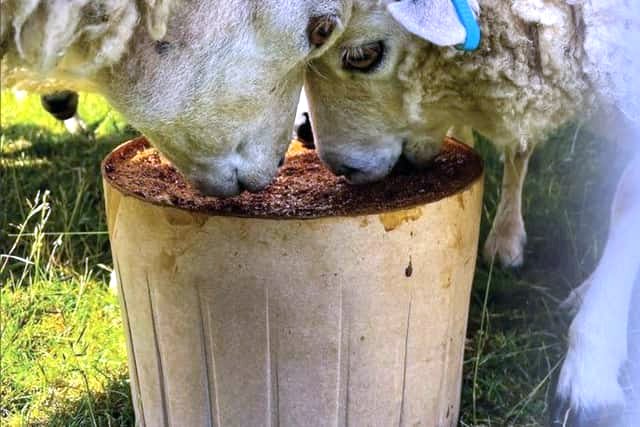
A Greater Manchester firm has invented 'ground-breaking' edible feed tubs for livestock, with hopes they will cut down on plastic farm waste.
Fibrestar Drums has developed Nestub, a 'world-first' for the industry, as it is a fully biodegradable and edible packaging solution for animal feed.
Nestub uses materials that are food safe and consumable for livestock, with the tubs made from recycled and virgin kraft paper.
They are designed to compete with plastic, while being less carbon-intensive.
Fibrestar Drums, a small firm based in Stockport, worked alongside the GM Business Growth Hub to solve farm plastic waste and how to dispose of it.
Giulia Bonito, product manager at Fibrestar Drums, said: “Disposing of their existing packaging was an issue for their farming customers, with many of the plastic tubs ending up either burned or buried or lost in the fields.
"We’d never served the agriculture sector before, but we’re always looking at ways to improve. We listened to what they had to say and then went away and tried to see how we could move into this new area.”
An initial concern was that Fibrestar’s traditional drums were tubular and are stacked one of top of the other, but farmers needed ‘nested’ tubs that could be stored one inside the other to maximise warehousing space and keep transport costs low.
The company reached out to GM Business Growth Hub, as well as numerous local universities, to share and help develop a solution.
Once prototypes were developed, on-farm testing found that by using the packaging to store feed meant that it became tasty for animals, and the chemical free construction meant that it was easily digestible.
Yvonne Grady, head of innovation at the GM Business Growth Hub, said Nestub represented a major breakthrough for farmers and animal feed producers.
She said: "They will no longer have to worry about how to get rid of plastic sacks and can rely on their own herds, or the weather, to dispose of packaging for them.
“We’re thrilled to have been a small part in the development of this innovative new project are excited to see how it is adopted by industry."
